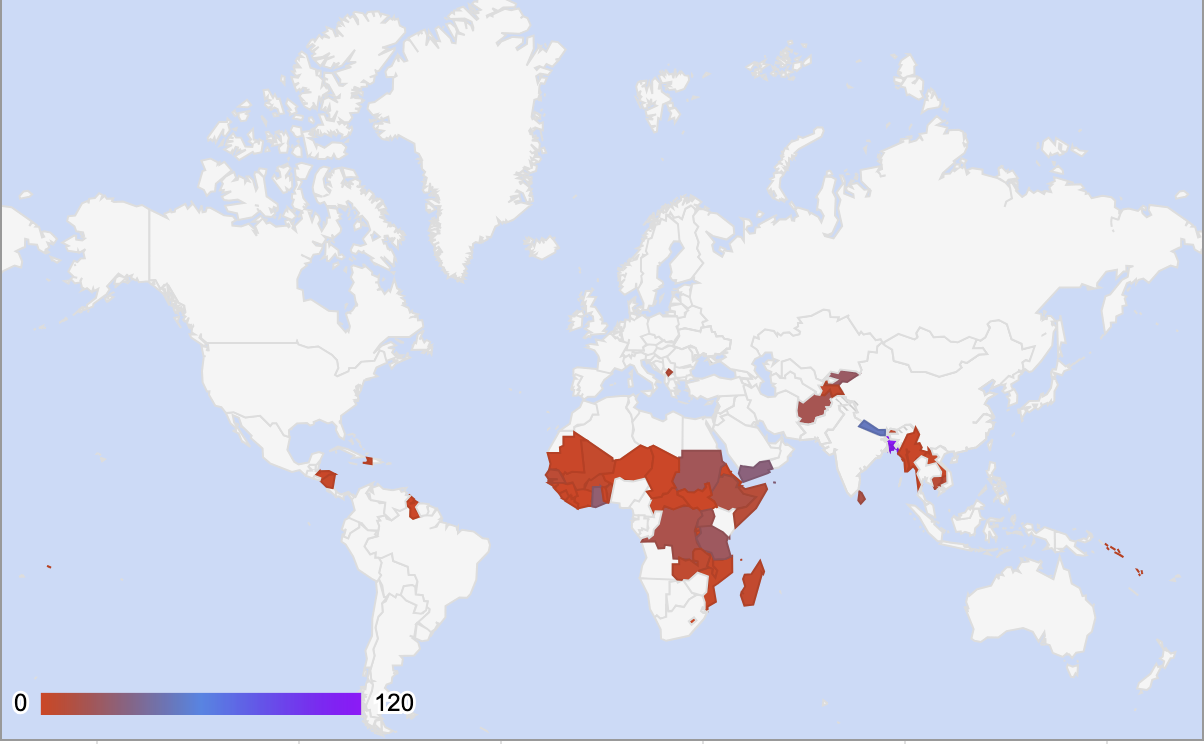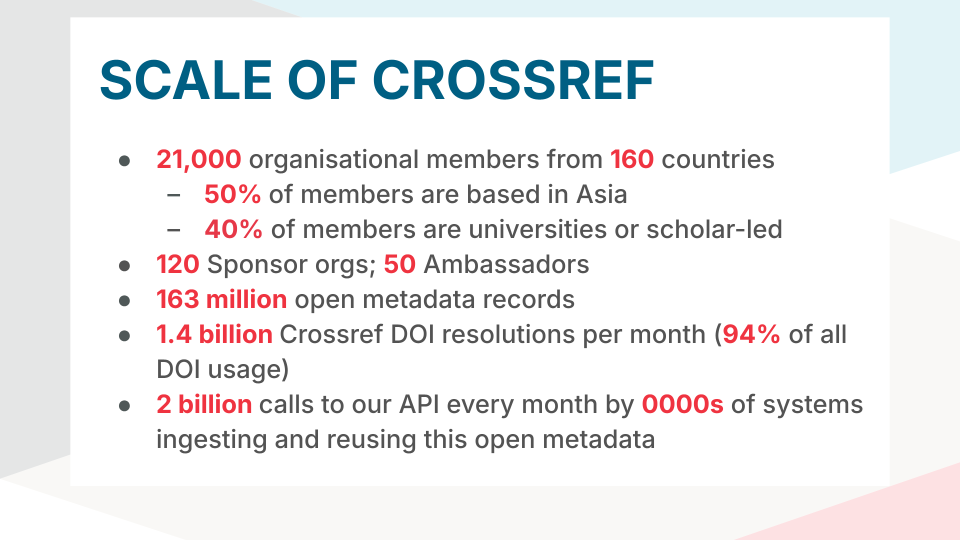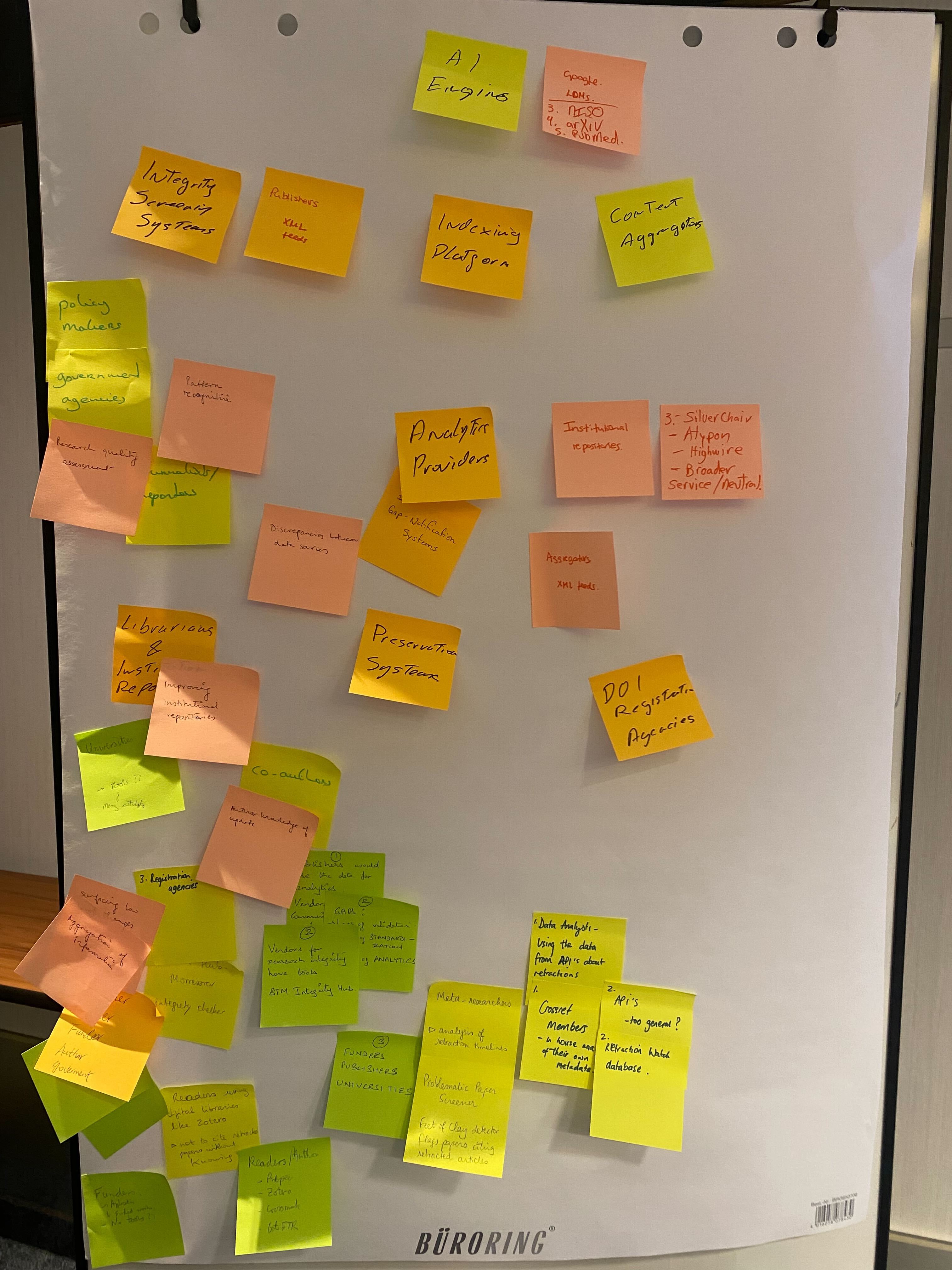
We began our Global Equitable Membership (GEM) Program to provide greater membership equitability and accessibility to organisations in the world’s least economically advantaged countries. Eligibility for the program is based on a member’s country;

We began our Global Equitable Membership (GEM) Program to provide greater membership equitability and accessibility to organisations in the world’s least economically advantaged countries. Eligibility for the program is based on a member’s country;
Retractions and corrections from Retraction Watch are now available in Crossref’s REST API. Back in September 2023, we announced the acquisition of the Retraction Watch database with an ongoing shared service. Since then, they have sent us regular updates, which are publicly available as a csv file.
As a provider of foundational open scholarly infrastructure, Crossref is an adopter of the Principles of Open Scholarly Infrastructure (POSI). In December 2024 we posted our updated POSI self-assessment. POSI provides an invaluable framework for transparency, accountability, susatinability and community alignment. There are 21 other POSI adopters.
https://doi.org/10.13003/axeer1ee In our previous entry, we explained that thorough evaluation is key to understanding a matching strategy’s performance. While evaluation is what allows us to assess the correctness of matching, choosing the best matching strategy is, unfortunately, not as simple as selecting the one that yields the best matches.

Looking back over 2024, we wanted to reflect on where we are in meeting our goals, and report on the progress and plans that affect you - our community of 21,000 organisational members as well as the vast number of research initiatives and scientific bodies that rely on Crossref metadata.

The Crossref2024 annual meeting gathered our community for a packed agenda of updates, demos, and lively discussions on advancing our shared goals. The day was filled with insights and energy, from practical demos of Crossref’s latest API features to community reflections on the Research Nexus initiative and the Board elections.

Background The Principles of Open Scholarly Infrastructure (POSI) provides a set of guidelines for operating open infrastructure in service to the scholarly community. It sets out 16 points to ensure that the infrastructure on which the scholarly and research communities rely is openly governed, sustainable, and replicable.
In June 2022, we wrote a blog post “Rethinking staff travel, meetings, and events” outlining our new approach to staff travel, meetings, and events with the goal of not going back to ‘normal’ after the pandemic.

Metadata is one of the most important tools needed to communicate with each other about science and scholarship. It tells the story of research that travels throughout systems and subjects and even to future generations.

For the third year in a row, Crossref hosted a roundtable on research integrity prior to the Frankfurt book fair. This year the event looked at Crossmark, our tool to display retractions and other post-publication updates to readers.
https://doi.org/10.13003/ief7aibi In our previous blog post in this series, we explained why no metadata matching strategy can return perfect results. Thankfully, however, this does not mean that it’s impossible to know anything about the quality of matching.